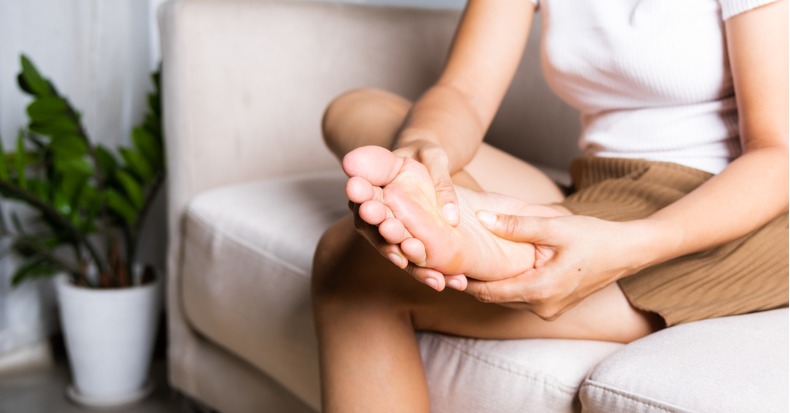Peripheral neuropathy (PN) results from damage to the nerves that carry motor and sensory information from the brain and spinal cord to the rest of the body. This condition often causes weakness, numbness, and pain, usually in the feet and/or hands, but it can affect the organ systems as well. Although PN can result from traumatic injuries, infections, metabolic conditions, inherited/genetic conditions, and exposure to toxins, one of the most common causes is diabetes. Left untreated, diabetic peripheral neuropathy (DPN) can cause irreversible damage to nerve tissue, kidney, retina, and blood vessels. Let’s discuss strategies for managing DPN…
- Vitamin D: A 2021 study found that type 2 diabetics with painful DPN are three times more likely to have severe vitamin D deficiency. Another study found that type 2 diabetic patients with DPN experienced a significant improvement in their neuropathy symptoms after taking a 50,000 IU vitamin D3 supplement once a week for twelve weeks.
- B Vitamins: The Mayo Clinic reports that B-vitamin deficiency (especially B1, B6, niacin and B12) is a risk factor for DPN as these vitamins are “crucial to nerve health.”
- Avoid Gluten: Individuals with celiac disease are about 2.5 times more likely to be diagnosed with neuropathy later in life when compared to those without celiac disease. Celiac disease is a condition in which the immune system attacks and damages the small intestine as a result of consuming a protein called gluten that’s normally found in wheat, barley, and rye. One study found that adopting a gluten-free diet led to significant reductions in pain in the hands and feet.
- Sleep: A literature review that included eleven studies concluded that diabetics with obstructive sleep apnea have an 84% higher risk for DNP than diabetics without a sleep-related disorder. Hence the importance of managing concurrent sleep apnea and getting sufficient, restful sleep.
- Avoid Repetitive Movements, When Possible: Engaging in activities that require repetitive motions of the hands and wrists can be especially problematic for diabetics. An analysis of long-term data concerning 30,466 Swedish adults found the type 2 diabetics are two times more likely to develop a compression neuropathy of the upper extremities, with carpal tunnel syndrome and ulnar nerve entrapment being the most common diagnoses. In another study, researchers studied the elbows of 82 type 2 diabetics and found that 36 (over a third!) had ulnar neuropathy, even though only three were symptomatic at the time of testing.
- Meditation: Mindful meditation is the practice of focusing one’s awareness on their body, breath, or sensations, or whatever arises in each moment. One study found that participants who practice mindful mediation for twelve weeks were less likely to need pain medication.
In addition to these approaches, your doctor of chiropractic can provide treatment in the office to facilitate proper joint motion and to reduce the pressure on any affected nerves. Your chiropractor will also work in coordination with allied healthcare providers, when necessary, to help best manage your condition.



